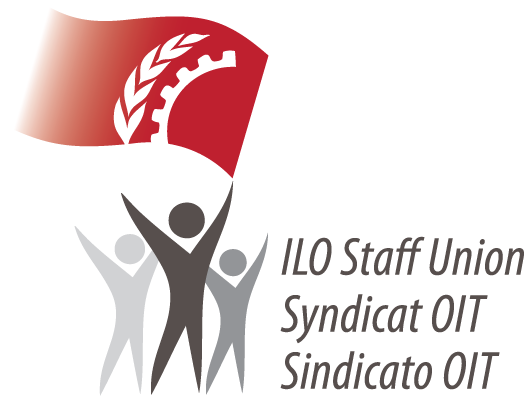En souvenir et en forme d’hommage à Jean-Jacques Oechslin par Jean-François Retournard, Mars 2021, pendant le troisième confinement.
Note de l’auteur : Jean-Jacques Oechslin dont nous publions un portrait ci-dessous fut Président du Groupe des employeurs pendant de longues années et à ce titre Vice-président du Conseil d’administration de 1979 à 1998 puis Président de ce même conseil en 1995-1996 et enfin élu Président de la CIT en1998.
L’auteur est un ancien fonctionnaire du Bureau affecté au Bureau des activités pour les employeurs dont il fut le directeur pendant quelques années. A ce titre il collabora étroitement avec Jean-Jacques Oechslin.
Le 28 juin 2017, Jean-Jacques Oechslin nous quittait. Il est plus que temps que ceux qui ont eu l’honneur de travailler avec lui, et j’ai eu la chance d’être de ceux-là pendant toute ma vie professionnelle, lui rendent l’hommage qui lui est dû.
Il ne s’agit pas dans ces quelques notes de rappeler sa carrière et les responsabilités qui furent les siennes au patronat français, à l’OIT et à l’OIE. C’est plutôt l’homme et ses qualités que je voudrais évoquer ici à grands traits. Avec le recul, le relief apparaît plus nettement, notamment les grandes lignes de son action, les axes majeurs qui ont orienté sa vie professionnelle. Au service de l’Organisation, Jean-Jacques Oechslin a apporté ses grandes qualités personnelles et ses compétences professionnelles qui ne l’étaient pas moins. Jean-Jacques Oechslin était un honnête homme au sens ancien du terme, pratiquant la modération en tout et en toutes circonstances mais sans faiblesse ni renoncement. Beaucoup de simplicité et de naturel avec une grande vivacité d’esprit, une curiosité intellectuelle toujours en alerte et un sens de l’humour jamais en défaut. Intègre et attentif aux choses et aux gens, persévérant sans être opiniâtre, il se connaissait bien et savait suivre son chemin. De la patience enfin et une capacité d’écoute nourrie du respect de ses partenaires et de ses interlocuteurs. Le portrait ne serait pas complet si on n’y ajoutait pas une grande fidélité en amitié et la capacité de nouer des liens avec des personnalités très différentes venues de tous bords et de tous horizons.
Il connaissait le français, le parlait clairement et l’écrivait avec exactitude et concision. Il n’avait pas oublié le latin de ses « humanités », ni le grec, suffisamment pour aimer la philosophie. Il pratiquait bien sûr l’anglais , déjà lingua franca de ce temps, mais aussi l’italien, l’espagnol sans oublier les grandes langues de culture que sont l’allemand et le russe. Ce serait exagérer de dire qu’il pratiquait toutes ces langues avec aisance mais il en savait suffisamment pour apprécier ce qui se disait et se pensait avec ces mots. Nous étions bien loin du « globish » standardisé, unifié et obligatoire qui nous appauvrit aujourd’hui.
Il écrivait vite et bien, d’un jet et sans rature : « ce qui se conçoit bien s’énonce clairement et les mots pour le dire arrivent aisément ». Le texte avait été pensé avant d’être écrit.
Avec toutes ces qualités, de grandes compétences : l’esprit de décision, le sens des responsabilités et des réalités ; une juste appréciation de la durée et du temps ; l’esprit tactique et le goût de l’initiative et de l’innovation. Je n’en donnerai qu’un exemple : la Déclaration sur les principes et droits fondamentaux au travail (juin 1998) qui, sans lui, n’aurait jamais vu le jour.
J’ajouterai pour compléter et finir, un authentique esprit international. Ceci va bien sûr avec la curiosité intellectuelle, les connaissances historiques, humaines et culturelles et le respect des autres. Honnête homme, homme de bien, homme de culture, culture politique, historique, profondément humaine et humaniste sans oublier la dimension spirituelle discrète mais bien présente.
Tout ceci à l’évidence a posé quelques problèmes surtout quand on a commencé à confondre internationalisme et mondialisation. Aux bourrasques hivernales venues de l’Est a succédé un fort vent d’Ouest aussi tempétueux. En voulant garder le cap, Jean-Jacques Oechslin s’est trouvé ou plutôt a été mis en porte-à-faux, parfois avec ses amis même dans son Groupe (trop souvent), assez rarement avec les travailleurs sauf quand il le fallait, par rapport au Bureau fréquemment, mais jamais par rapport à l’Organisation et à ses valeurs.
Ce sont justement ces valeurs qui ont permis à Jean-Jacques Oechslin de garder le cap, des valeurs qu’il a servies avant qu’il ne soit expédient d’en parler.
Quels furent ses combats ?
La défense de la démocratie et de l’économie de marché qui devaient se conforter mutuellement et marcher d’un même pas, combat minoritaire à l’époque et que beaucoup trouvaient illégitime, y compris au sein de l’Organisation et du Bureau.
Défense de la liberté d’entreprendre et de la liberté dans toutes ses composantes, au premier rang desquelles se rangent la liberté d’organisation et la liberté syndicale. Je mentionnerai ici à titre d’exemple l’interminable débat sur la structure et les attaques très dures du bloc communiste et de ses compagnons de route contre l’autonomie du Groupe des employeurs. Jean-Jacques Oechslin était en première ligne et si ces combats n’avaient pas été gagnés, les bases mêmes du Tripartisme disparaissaient.
Autre exemple : son attachement au Comité de la liberté syndicale dont il a été membre tant qu’il a été Président du Groupe. Il considérait ce mandat comme sa responsabilité la plus éminente.
Défense et illustration mais aussi pratique du Tripartisme et du dialogue social (on pense ici au rocher de Sisyphe) pour lesquels il a su trouver et pu compter sur des appuis indispensables tant au Bureau que chez les travailleurs. Rien n’aurait été toutefois possible sans le soutien permanent des responsables politiques du patronat français, au premier rang desquels on doit citer François Ceyrac et Yvon Chotard (avant son avatar gouvernemental) avec l’appui indéfectible politique et humain de l’UIMM depuis 1919. Ces hommes d’envergure, très informés des réalités du monde, étaient sans illusion sur les manques et les faiblesses de l’OIT et du BIT mais ils ont constamment gardé à l’esprit ce qui était le plus important, les grands enjeux que je viens de rappeler et donc le soutien que l’action de Jean-Jacques Oechslin à l’OIT devait recevoir.
Quels furent les grands axes de cette action ?
En premier lieu, je citerai la vision à long terme et la longue durée. Jean-Jacques Oechslin avait travaillé avec Pierre Waline qui fut Président du Groupe de 1953 à 1970 et qui avait participé à la première CIT en 1919 et à toutes celles qui ont suivi jusqu’à ce que lui-même prenne la relève. C’est dire qu’il avait une connaissance intime de l’Organisation sur la longue durée, indispensable pour mettre les actions dans leur juste perspective. Ceci était possible à l’époque dans un monde plus stable et moins pressé, où les institutions étaient respectées et où on faisait « carrière » dans son métier.
A cela s’ajoutait une analyse politique solide, loin des émotions du moment et une vision globale de la place et de l’action de l’Organisation dans la vie internationale tant sociale qu’économique et politique. Jean-Jacques Oechslin avait conscience que le monde d’avant la mondialisation n’était pas cloisonné mais articulé. Il ne séparait pas la politique sociale nationale du niveau régional (européen en l’occurrence) et international. C’était se heurter aux résistances de tous ceux, fort nombreux, qui ne raisonnaient qu’en fonction de leur environnement immédiat où qu’ils fussent placés et des contingences de l’heure. Cette ampleur de vues, ces convictions fortes et ces grandes qualités n’ont pas toujours été comprises, surtout quand se sont affirmés le conservatisme étroit, les mirages insulaires et l’opportunisme utilitariste à courte vue qui a cru que son heure était venue dans un monde qu’on croyait pacifié.
Son engagement s’est poursuivi même au-delà de ses fonctions, puisque dès sa retraite, il a dépensé beaucoup d’énergie et de persuasion pour fonder en 2001 l’Association française pour l’OIT en dépit de résistances multiples et des lourdeurs bureaucratiques que chacun connaît. Il faut aussi saluer, au moment de conclure, la contribution de son épouse sans qui rien de tout cela n’eût été possible. Elle sut non seulement accepter les charges que cet engagement signifiait pour elle et pour sa famille, mais partager ses idéaux et participer à leur réalisation.
Il faut arrêter là ce témoignage personnel. C’est un bien modeste et tardif tribut à l’homme qui a mis beaucoup de talent et d’énergie et pendant très longtemps au service de l’Organisation. A tel point que j’en ai été parfois interloqué ou dubitatif. Son engagement était profond et désintéressé. Il rejoignait ses convictions les plus profondes. J’ai mis très longtemps à le comprendre mais aujourd’hui, avec le recul du temps, je puis dire que je les partage et je souhaite ardemment qu’elles servent au renouveau de notre Organisation et trouvent un écho et un relais dans les trois Groupes qui la composent et parmi mes anciens collègues.
Certains trouveront sans doute ce témoignage partial. Il l’est. Incomplet il l’est. Libre à chacun de le corriger ou de le compléter.
 The Section of Former Officials of the ILO
The Section of Former Officials of the ILO
